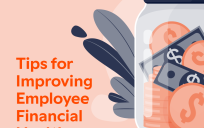It is the issue in the room that no one wants to talk about-privilege. As White Feminist, Peggy McIntosh in 1993 described it- “An invisible package of unearned assets that I can count on cashing in each day but about which I was meant to remain oblivious to.”
Although no one wants to talk about privilege, it permeates every facet of our lives and slowly but surely erodes our abilities to recognize and embrace differences. For example:
• White people on most occasions can go shopping without being targeted as shoplifters.
• Men normally don’t have to deal with excessive amounts of attention based on their sexual attractiveness like women do.
• Heterosexual couples can move through life without fear of being sexually harassed due to their sexual orientation unlike the experience of same sex couples.
• Non-disabled people rarely encounter the segregation, isolation and exclusion felt by people with disabilities.
Just as privilege dominates our personal domains, it also thrives in the workplace according to thought leaders, Mauricio Valasquez and Kecia Thomas. They claim that most dominant groups in the workplace can:
• Look at their leadership and see someone who looks like them.
• Make a mistake and know that it will not impact the future of others like them.
• Seek information or feedback and not fear that they will be labeled needy or incompetent.
• Feel confident that their institution has the best interest of people like them in mind.
• Ask to speak to the person in charge and feel confident they will meet with someone from their group.
• Make a complaint or seek justice without having their group membership called into question.
What do we do about privilege? Thought leader Allan G. Johnson has some ideas:
• Admit that privilege exists by finding out more about it.
• Pay attention to your privilege and how it affects others.
• Be aware of how your silence about privilege reinforces it.
• Do little things to eliminate privilege within your own networks.
• Get comfortable with making yourself and others uncomfortable about privilege.
• Promote change in systems that have organized themselves around privilege.
• Work with other people on eliminating privilege particularly those victimized by it.
Let’s move beyond cynicism and anger that keeps us from doing anything about privilege. Set your own standard and remember as long as you do something about privilege, it is better than doing nothing at all.





Great article. You are so on point about privileged individuals in the workplace.
There are also individuals who have a sense of entitlement.
Thank you for the courage to make a comment. This is a difficult subject for many. I appreciate your perspective.